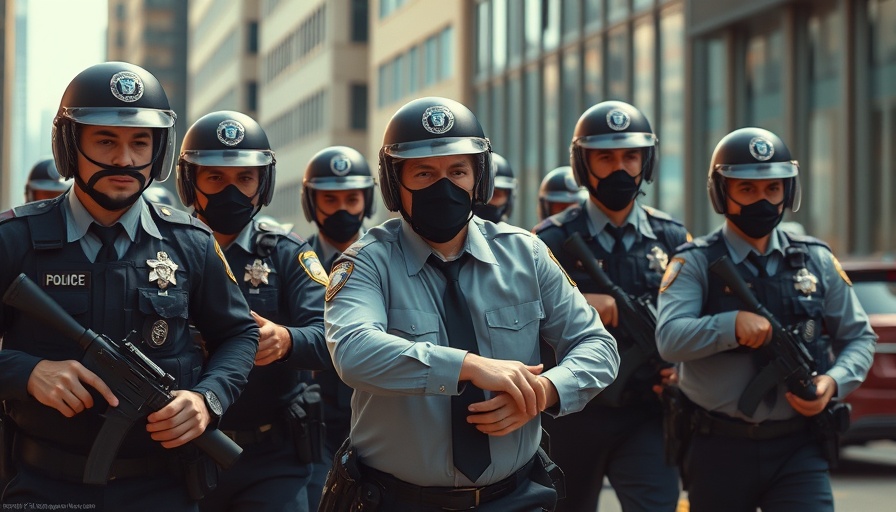
ICE’s New Tactic: Detaining U.S. Citizens
In a startling shift in law enforcement practices, Immigration and Customs Enforcement (ICE) has recently detained two U.S. citizen protesters in downtown San Francisco. This incident marks a notable first for the Bay Area, as immigration lawyers confirm that ICE has not apprehended American citizens in association with protests for nearly two decades. On August 8, 2025, ICE agents confronted the protesters outside their field office in the city, significantly stepping beyond their usual enforcement protocols.
The Preceding Landscape of Protest Arrests
Earlier this year, ICE has been active in Los Angeles, detaining upwards of 38 protesters, of whom only a fraction were convicted successfully, highlighting the agency's controversial practices and limited success in legal outcomes. The record shows that just 7 of the 38 individuals charged in Los Angeles have obtained successful indictments, raising questions about the legality and rationale behind such aggressive enforcement.”
Legal Perspectives on the Detention of Citizens
The legality of ICE's actions has sparked vigorous debate among legal experts and civil rights advocates. According to Jennifer Friedman, interim director of the Immigration Unit at the San Francisco Public Defender’s Office, these arrests represent a dangerous overreach of civil enforcement authority. She argues that by detaining U.S. citizens, ICE's actions contradict their own policy prohibiting the arrest of citizens for immigration violations.
A Closer Look at Agency Authority
ICE operates under a complex framework permitting them to arrest individuals involved in felonies, prompting confusion over their legal rationale. While they cannot enforce immigration laws against U.S. citizens directly, their authority extends to detaining individuals believed to be involved in serious criminal activity. Critics suggest that ICE's recent actions blur the lines between immigration enforcement and criminal law, raising concerns over civil liberties.
Community Response and Broader Implications
This incident has ignited public discourse around civil rights and law enforcement approaches in the United States. Activists and residents are closely scrutinizing the actions of ICE, emphasizing the need for transparency and accountability in law enforcement practices. As the climate of public protests continues to evolve amidst social justice movements, the implications of these ICE detentions could set a troubling precedent for how citizens engage in expressive freedoms moving forward.
Connecting the Dots: National Context and Local Impacts
The arrests in San Francisco come in the wake of broader national tensions surrounding immigration reform and protesters' rights. With ongoing debates engulfing local politics—impacting San Francisco community news and public safety—activists argue for the protection of civil liberties against government overreach. Many are questioning whether it could signal an adverse trend in civil rights if federal enforcement agencies are allowed to expand their reach.
Moving Forward: What You Can Do
For citizens concerned about these developments, advocacy plays a crucial role. Engaging with local government and participating in community discussions can amplify the voices calling for transparent policies that protect civil liberties. Staying informed through San Francisco's local news outlets and getting involved in neighborhood initiatives can help cultivate an informed citizenry that actively participates in governmental decisions affecting public safety and rights.
Conclusion: The Path Ahead
This season of unrest and change spotlights a significant juncture in both legal and community frameworks within San Francisco and beyond. As the situation unfolds, the necessity for vigilant citizen engagement cannot be overstated. Being active in your local community offers the power to shape the trajectory of public policy on these issues, fostering an environment where rights are upheld, rather than violated. Take a moment to participate in your local discussions and advocacy efforts—our freedoms depend on it.
 Add Row
Add Row  Add
Add 




Write A Comment